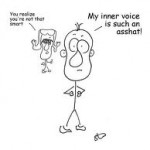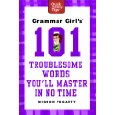 This last weekend I spent four days in a large house in the middle of the woods with seven other women. It was understood from the get-go that this was a writing retreat, so excessive visiting would not be tolerated. While there, we had a morning snack, lunch, an afternoon snack and dinner (we ate really good), and each of us was responsible for preparing one snack and one meal. We had to clean up after as well, but that was the only time we really had to take out of our writing time. We would stand around chatting for a few minutes during snacks and we would all eat together and check on our progress during meals. This was fun and bonding for all of us. But mostly, we were writing from when we woke up till we went to sleep.
This last weekend I spent four days in a large house in the middle of the woods with seven other women. It was understood from the get-go that this was a writing retreat, so excessive visiting would not be tolerated. While there, we had a morning snack, lunch, an afternoon snack and dinner (we ate really good), and each of us was responsible for preparing one snack and one meal. We had to clean up after as well, but that was the only time we really had to take out of our writing time. We would stand around chatting for a few minutes during snacks and we would all eat together and check on our progress during meals. This was fun and bonding for all of us. But mostly, we were writing from when we woke up till we went to sleep.
Our commander-in-chief (and retreat organizer) aka the “Write or Die Nazi” said she would keep us on task. And she did. We used Dr. Wicked’s Write or Die program ($10) and competed against each (I even did this virtually with a friend who didn’t come). If you’re not familiar with this program, you set a word goal and a time limit – I use 1000 words in 60 minutes most of the time – and  then hit the WRITE button. It opens a new screen and this is where you start typing. It shows you how many words you’ve typed and how much time you have left to go. If you pause for too long, the screen starts turning pink and will go to red while simultaneously a heinous sound of your choosing starts blaring at you, but as soon as you start typing again, it will go away. Trust me when I say this keeps you motivated. When done, you can then copy/cut and paste your text into your main document.
then hit the WRITE button. It opens a new screen and this is where you start typing. It shows you how many words you’ve typed and how much time you have left to go. If you pause for too long, the screen starts turning pink and will go to red while simultaneously a heinous sound of your choosing starts blaring at you, but as soon as you start typing again, it will go away. Trust me when I say this keeps you motivated. When done, you can then copy/cut and paste your text into your main document.
 Not all of us would participate all the time, but several times a day, our Nazi would call out, “Write or Die” and whoever wanted to join in would get ready and when called, we would all start at the same time. An hour later, we’d check in and see how we each did. After the brief cheers, we’d go back to writing. Some would turn the sound off so as not to bother others (the red screen still keeps you hopping) and do it by themselves in between the group competitions. We were writing almost all day of every day there.
Not all of us would participate all the time, but several times a day, our Nazi would call out, “Write or Die” and whoever wanted to join in would get ready and when called, we would all start at the same time. An hour later, we’d check in and see how we each did. After the brief cheers, we’d go back to writing. Some would turn the sound off so as not to bother others (the red screen still keeps you hopping) and do it by themselves in between the group competitions. We were writing almost all day of every day there.
The energy was supercharged and we all kept each other going longer and more productively than we would have if home alone. This was exceptionally good for me because I’ve had a hard time writing lately. I sit there thinking, fingers hovering over the keyboard, waiting for ideas to  come. At the retreat, I did this the afternoon of Day 1 and the first half of Day 2 and I had 800 words to show for it. I was frustrated. I had the Write or Die program on my computer but hadn’t used it in a really long time. So, the next challenge that was called, I participated. I did more words in that hour than I had in the eighteen hours prior combined. I used the program and the challenges the rest of the retreat and ended up getting almost 18,000 words done by the time I went home. Our highest gal did 24,000 total. We are romance writers who write in our free time when jobs, husbands, kids and everything else in our lives allows. Some are better at making that time and being productive, others less so, but no one left from this retreat left with less 15,000 new words.
come. At the retreat, I did this the afternoon of Day 1 and the first half of Day 2 and I had 800 words to show for it. I was frustrated. I had the Write or Die program on my computer but hadn’t used it in a really long time. So, the next challenge that was called, I participated. I did more words in that hour than I had in the eighteen hours prior combined. I used the program and the challenges the rest of the retreat and ended up getting almost 18,000 words done by the time I went home. Our highest gal did 24,000 total. We are romance writers who write in our free time when jobs, husbands, kids and everything else in our lives allows. Some are better at making that time and being productive, others less so, but no one left from this retreat left with less 15,000 new words.
There are many of you out there that can produce like this or better without breaking a sweat, but for me it was huge. Having the pressure of the red screen/screeching violins looming kept my brain from sabotaging me. My inner editor couldn’t keep rereading and fixing the same material or searching for  the perfect word. My doubt couldn’t sneak in and plague me with whether I was going the right direction. I couldn’t stall by doing research ad nauseam. I had to just write. And I did. Sure, I have to go back and edit it and add a lot of details that do take some thought, but it’s easier to do that when you have something to work with. Surprisingly, it was even good material. It’d been in my mind, I’d been thinking on it for a long time, but I’d been sabotaging my efforts to get it on the page. Write or Die was like guerilla warfare blitzing my inner adversary.
the perfect word. My doubt couldn’t sneak in and plague me with whether I was going the right direction. I couldn’t stall by doing research ad nauseam. I had to just write. And I did. Sure, I have to go back and edit it and add a lot of details that do take some thought, but it’s easier to do that when you have something to work with. Surprisingly, it was even good material. It’d been in my mind, I’d been thinking on it for a long time, but I’d been sabotaging my efforts to get it on the page. Write or Die was like guerilla warfare blitzing my inner adversary.
If you are one of those who can produce consistently, I applaud you and hope to join your ranks sooner than later. For those who may need some assistance, Write or Die may help. I know that even since I’ve been home, if I use the program, I get more done. I turn to it as a tool when I find my fingers hovering instead of typing.
Have you used it? Do you use other types of warfare? The more tools I have, the better. Let’s hear it, troops.

